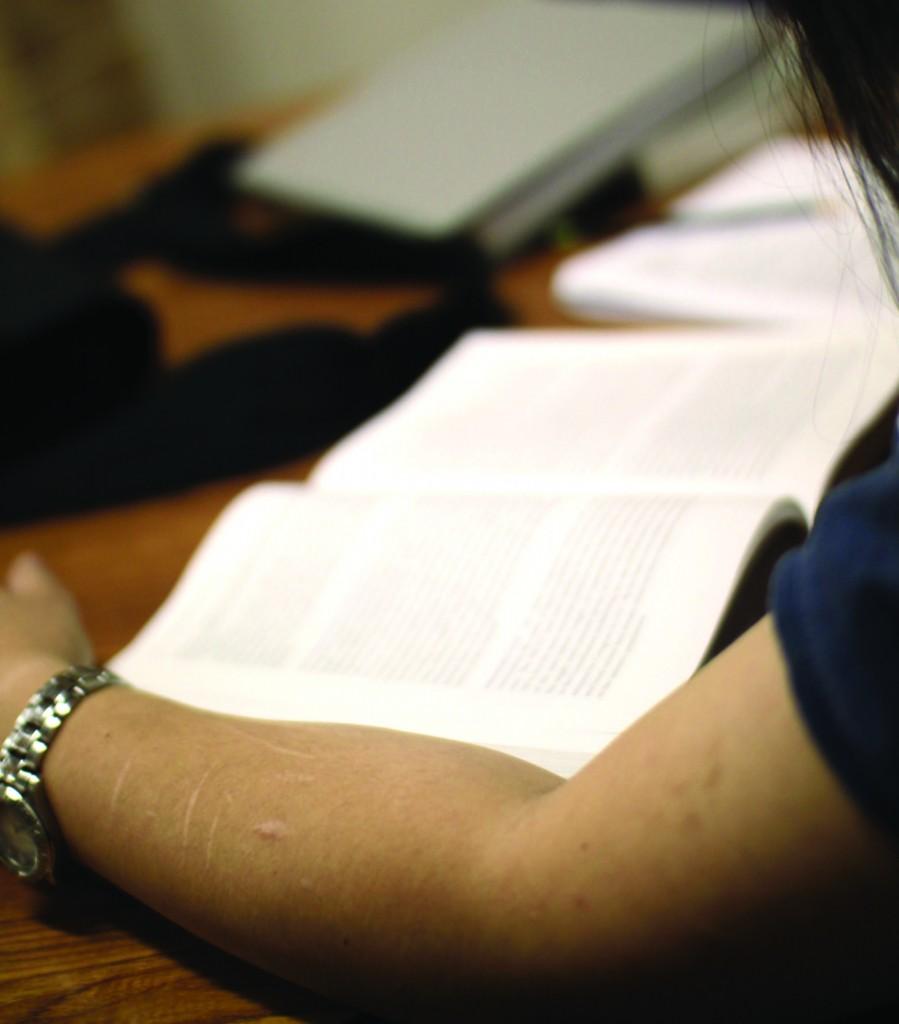By Amber Veytia/reporter
A capacity audience of 70 learned the benefits of schedules in Are You Managing Your Time or Is Your Time Managing You? Oct. 9.
South Campus counselor Suzanne Carranza presented the seminar at a Women in New Roles Network meeting at Ol’ South Pancake House in Fort Worth. Carranza, a TCC alumna, also teaches in the WINR program.
“Attending college is like a job,” she said. “The grade is your paycheck, and you will work for that grade.”
Carranza broke down the reality of one’s personal timing and schedule.
“Everybody has the same 168 hours in a week,” she said. “You use 56 hours for sleep, so you can subtract that. Then deduct another 28 hours for eating and food prep. That leaves 84 hours for everything else.”
Carranza said students with a full-time job would have to deduct 40 to 45 hours for that, not to mention time to commute and get ready in the morning. Those activities would leave only 30 to 34 hours for everything else including college, homework and TV.
She then referenced the study rule that for every one hour of lecture, one should spend two hours studying. Therefore, if students are taking 12 credit hours of college, then they should devote approximately 36 hours to college each week.
“I have some students who can tell me every character on their favorite TV shows, but they say they don’t have time to get their homework done,” she said. “This is because they are not prioritizing what to do with the last 34 hours of their week.”
Carranza said students must decide what is truly important to them and focus entirely on that.
Terri Naini, a NE Campus student, attended with her adult daughter Christina McCallum.
“I came because I really respect what is being taught through the WINR networking events,” she said. “I wanted to share that with my daughter.”
McCallum said she hoped to learn to manage her time to better care for her autistic son while completing a nursing program. She said those are the most important things in her life right now and where she wants to focus her time.
Carranza also offered study tips such as studying in an area that is conducive to studying and not a place too comfortable like a bed. She said students should record lectures, write notes from that recording, read the notes aloud into a voice recorder, then listen to the notes over and over again while driving, cleaning or making dinner.
Carranza said a study group is one of the best ways to cover all the information, stay focused and control distractions.
“The library has study rooms available, so you should study with people,” she said.
Carranza closed by explaining “the three D’s” — delegate, do it or dump it. She said students should always keep a schedule or calendar of some sort, and every time they have something to do, they should apply the three D’s.
If students decide someone else can better handle a task, they should let go of that control and hand it over, Carranza said.
If the task is something important students can do themselves, it should go on their calendar to ensure they do it.
Finally, if students decide the task has no relevance to them or their lives, they should dump it and not spend any more time on it.
Jeanette Shelby, a South Campus student, said she simply wanted to get some extra credit for attending but was glad she went.
“I learned a lot and got some great study ideas,” she said.

























